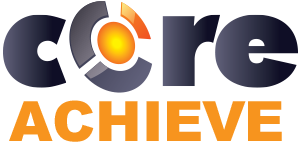Mixing Instructor-Led Sessions and Self-Directed Online Courses
January, 17 2023
Other posts:
Enhancing Team Dynamics for Effective Group Decision-Making with LMS Integration
Organizations increasingly rely on collaborative efforts to solve complex problems, innovate, and adapt to change, but how do we ensure that collaboration is happening.
Maximizing Small Business Potential with Training Technology
Training technologies can push small businesses ahead of their competitors, but what are the factors that go into choosing the right technology?
Unlocking Employee Potential: The Transformative Benefits of an Interactive Learning Management System (LMS)
Interactive training allows for unlocking employee potential, but how is it done?
Building a Robust Sales Pipeline with Training
Every organization wants a streamlined sales pipeline, but building one requires a series of interlocking activities with one of the most important being training.
Strategies for Adapting In-Person Training to Online Platforms
Online training is one of the most flexible ways of delivering training across organizations, but how do you even begin to adapt in-person training into online?
Human connection is vital for learning, but self-directed courses are so much more efficient. How do we properly blend the two?
For a while organizations have been shifting away from the typical, in-person training. This isn’t necessarily a bad thing, after all, online training provides for opportunities like learning paths or responsive quizzes that aren’t feasible in-person. Yet completely removing the human element of training has shown to be less effective. Even without accounting the effectiveness, maybe your organization needs to train specific items in-person or maybe you just prefer to keep that physicality. Regardless of the reason, you do not have to sacrifice the benefits of either.
A quick note on terminology: Instructor-led training refers to a training session (virtual or in-person) which is controlled by instructors.
What is hybrid learning?
Mixing online and in-person learning is commonly known as hybrid learning. Typically, it means that some sessions are held online while others in-person, but all are instructor-led. This typical model requires a lot of time, resources, dependency, and instructors, so it might not be feasible for your organization. Hybrid learning for your organization will most likely take the form of a few instructor-led sessions and the rest being online courses.
What’s the best way to do it?
The idea is easy to understand, have some amount of the content online and have the rest be instructor-led. What content falls on which side is relative, but for an easy split, you could make the finale of every section is instructor-led to help any lingering problems. Be cautious about how many instructor-led meetings you do, because too frequently and it can dampen benefits from online training—like the speed at which training can be delivered.
Whenever making use of both instructor-led meetings and online training, play to the strengths of both. For example, instructor-led is great for anything physical or a dialog whereas online training is great for small-content or individualized learning. It can be easy to go overboard with the amount of either, but just think about how effectively the medium delivers that content.
Why is hybrid training not as common in organizations?
Part of the reason why an organization may shy away from hybrid training is that it is simply too complicated within their current learning system. Get into the system, pick a subject, pick a time, hop out of the system, send out notifications, put it on the attendees to remember (always a gamble), take attendance of who showed, jump back into the system, ad hoc transfer those attendance records, and begin taking the next appropriate steps. This needless complexity is, well, needless.
Using CoreAchieve for painless hybrid learning
With a platform like CoreAchieve, which streamlines the hybrid training process, you easily bridge the gap between instructor-led sessions and online modules. A calendar with CoreAchieve will tell learners when and where, automatic reminders will be sent, attendance will automatically be reported, and to can assign weight to these sessions in the form of credits. Every process is made easier, for learner and instructor.
Make more connections
Connections are at the fundamental level of learning and the human experience of talking with other people furthers this. Maybe someone will phrase something differently that’ll click just right Even if it isn’t possible to consistently give instructor-led trainings, it may be beneficial to have one or two sessions to be able to know where your learners are.
Get started with CoreAchieve for free.
Photo by Chris Montgomery on Unsplash

Leave comment: